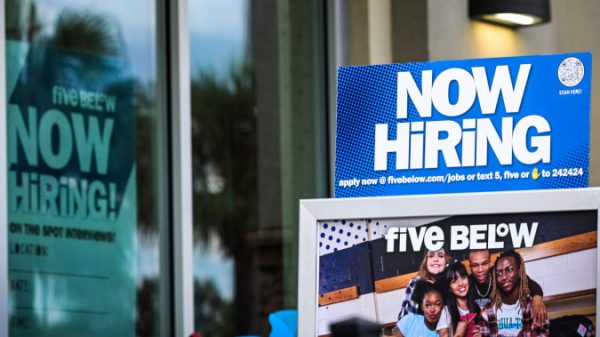A winner-takes-all aspect rules much of the modern world.
It annoys pundits that a handful of firms dominate every industry. It annoys tech regulators that the Googles and Facebooks of the world become unimpeachable giants that won’t be toppled by upstarts anytime soon. It annoys Bitcoiners that the US dollar centralizes rather than dissipates, and that replacing it with an obviously better money is such an uphill battle — money wants to be one.
The reason is the same across all those fields: network effects. It’s easier to trade with people who use the same money you do; it’s easier to talk to people who speak the same language you do; it’s easier to message people who use the same tech platform you do.
While we often look at the top of that competitive pyramid of network effects, the bottom gets less attention, but is even more informative. Sverker Johansson, the Swedish physicist-turned-linguist, reminded me of this in a recent interview. So many languages are dying, he said, and that’s a colossal loss to humanity. Likethe loss of biodiversity in nature, the loss of linguistic diversity is a tragedy.
The world’s 8-billion-plus humans collectively speak something like 7,000 languages — most of which are considered critically endangered, spoken only by a trivial number of people. Throughout all of human history, as many as 31,000 languages may have existed. Linguists dramatically describe the modern extinction as “language death” — and, like Johansson, are horrified at the loss.
But is it really that tragic?
Human language is an institution, and like all social institutions languages serve a purpose, fulfill a need. Humanity, until about two seconds ago evolutionarily speaking, consisted of small and isolated tribes. The communication needs that language fulfilled were limited to one’s immediate neighbors, family, and friends. Fast-forward a couple of hundred generations and it’s no wonder that we get mutually incomprehensible languages, tailored to suit the speaking-needs of that specific population with words that apply in that specific geography. New Guinea, the second-largest island in the world, is always the go-to example. In a 2017 article, The Economist pointed to a plausible reason for why PNG has some 800 languages across a ten-million population:
So many of these languages have survived thanks to Papua New Guinea’s wild topography. Mountains, jungles and swamps keep villagers isolated, preserving their languages… It takes about a thousand years for a single language to split in two, says William Foley, a linguist. With 40,000 years to evolve, Papuan languages have had plenty of time to change naturally.
In contrast, just three languages (English, Spanish, Portuguese) overwhelmingly make up the linguistic tissue of the billion people of the Americas.
Set aside the issue of unique, untranslatable expressions native to certain languages — a topic that the jury is still out on — does it really matter that half the world’s population speak one of the 30 largest languages as their first language?
Think of this as the venture capital principle applied to languages. Famously, venture caps invest widely in a large number of promising start-ups, where the returns from one or two bulls-eye investments pay for the many others that fail. The median venture capital raise results in complete failure, yet individual funds and the industry at large can flourish. Most new books aren’t best-sellers, but the slam-dunks pay for everything else in publishing. The dying failures don’t matter.
Take a further illustration. Music is an invaluable expression of human art and emotion. Spotify currently boasts 100 million songs; estimates for the total number of songs humans ever made are in the mid-hundred millions. Most of them have been lost, gone unrecorded, or have their notes gathering dust in an archive somewhere. Of the ones we have easy access to, most only receive a pittance of listeners every year.
Is humanity worse off because we listen to Song A instead of Song B, read this great book instead of that one? Have we tragically lost some grand human experience? Probably not.
U2, one of the most celebrated rock bands of all time, have released 436 songs. Plenty of them are garbage, and only die-hard fans have ever heard of more than a dozen of them. Many of their songs have Spotify streams “only” in the hundreds of thousands, completely dwarfed by the 900 million streams for “With Or Without You” or 500 million for “Beautiful Day.” It takes away nothing from the excellence of this Irish rock band that most of their songs are duds.
Apologies in advance to all the Swifties, but Queen Taylor has released 234 songs. It’s a testament to her success as an artist that as many as 20-30 are worth keeping.
Same with the long tail of website traffic and podcasts. The 100 most-frequently visited websites have most of the traffic. Some 500 million people listen to podcasts, often daily, but most only tune in to the top 1-5 percent of podcasts. The joke is that the median podcaster has one listener — himself.
Human institutions like languages, or human art like storytelling or poetry or music, serve human functions. They don’t have, to use a term from monetary economics, “intrinsic value.” There’s nothing to them but their current usage. Their individual existence means nothing. If we don’t speak this language, we can speak another. Would we thereby be made worse off in terms of our ability to convey meaning, co-exist, co-operate? Unlikely. If we don’t listen to this great song, we can listen to another similarly great song without much (any?) loss to society.
Nobody laments the unheard-of startups that didn’t make it, the continuous flow of innovations that go nowhere, the books nobody has heard of. Why lament the languages you didn’t know existed? Economists call this the Pareto Principle (or an “80/20” distribution), after neoclassical economist Vilfredo Pareto. Like most things, the modern world has taken reality’s existing structures to their most extreme; perhaps we should rebrand it the Occupy Wall Street principle. We, the denizens of the modern world, live in the 1 percent, where all our art, our books, our economic value, our money, and our languages reside.
































